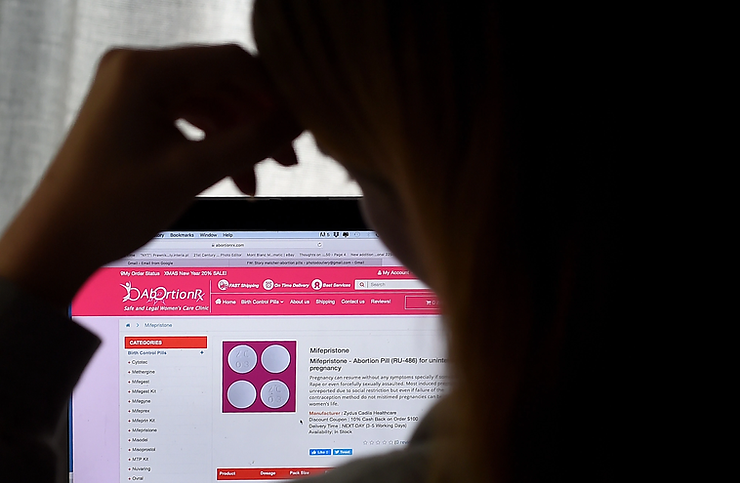By: Sophie Fu
Abortion has become even more dangerous after recent law changes, with past cases showing how prosecution about abortion will be easy for officials using private online data against the defendant. Many forms of digital data like emails, online searches, and even personal texts have previously been used as evidence for abortion cases. “The reality is, we do absolutely everything on our phones these days. “There are many, many ways in which law enforcement can find out about somebody’s journey to seek an abortion through digital surveillance,” a National Advocates for Pregnant Women staff attorney, Emma Roth, commented.
In 2015, the first woman prosecuted for abortion using digital evidence was initially sentenced to twenty years in prison. Her name was Purvi Patel, an Indian American woman living in Indiana. According to court records, the prosecution used various digital evidence against her. The trial used evidence, including texts about abortion pills to her Michigan friend, and her internet history, which showed a website named “National Abortion Federation: Abortion after Twelve Weeks.” Moreover, they discovered an email from InternationalDrugMart.com, from where investigators were able to obtain abortion pills. Patel was released from prison after the Indiana Court of Appeals overturned the previous conviction with a new ruling.
Another case in 2017 involving a woman named Latice Fisher also used personal digital data as evidence against her in court. In Fisher’s Mississippi house, paramedics found a baby with an umbilical cord dead in a toilet. The 35-week-old baby could not be successfully resuscitated at the hospital. Police found in Fisher’s iPhone search history ten days ago, “buy Misopristol Abortion Pill Online” after she had willingly handed over the device. After an online investigation, prosecutors obtained evidence that she had bought abortion pills, but no evidence showed that Fisher had taken them.
Fisher’s spokeswoman Laurie Bertram Roberts stated, “Lots of people Google about abortion and then chose to carry out their pregnancies. Thought crimes are not the thing. You’re not supposed to be able to be indicted on a charge of what you thought about.” In the end, Fisher was charged with second-degree murder after medical examinations of the dead child. However, she was later released after the tests proved irrelevant evidence.
Police can easily access personal messages and digital footprint from technology companies, fertility apps, and other organizations selling data. The officials can use warrants to obtain almost all of this information. That said, it is challenging and nearly impossible for people not to leave any tracks online in the process of getting access to abortion. “It may be difficult to think about digital privacy first when you have other things, you’re worried about,” said the legal director of Electronic Frontier Foundation, Corynne McSherry.
Corynne McSherry also proposed that tech companies must play a more significant role in keeping reproductive health data private. “Privacy is a team sport — when you take steps to protect your own privacy, you also take steps to protect the community,” she spoke. Recently, Google declared its policy of erasing location history for users going to abortion clinics.
Besides tech companies providing digital evidence, medical staff and the defendant’s close friends are sometimes pressured to give evidence.
Even though technology companies are starting to take steps to protect private data, the rulings from court cases can jeopardize their ability to maintain the confidentiality of users pursuing abortion in the future.
Sources: https://www.washingtonpost.com/technology/2022/07/03/abortion-data-privacy-prosecution/











